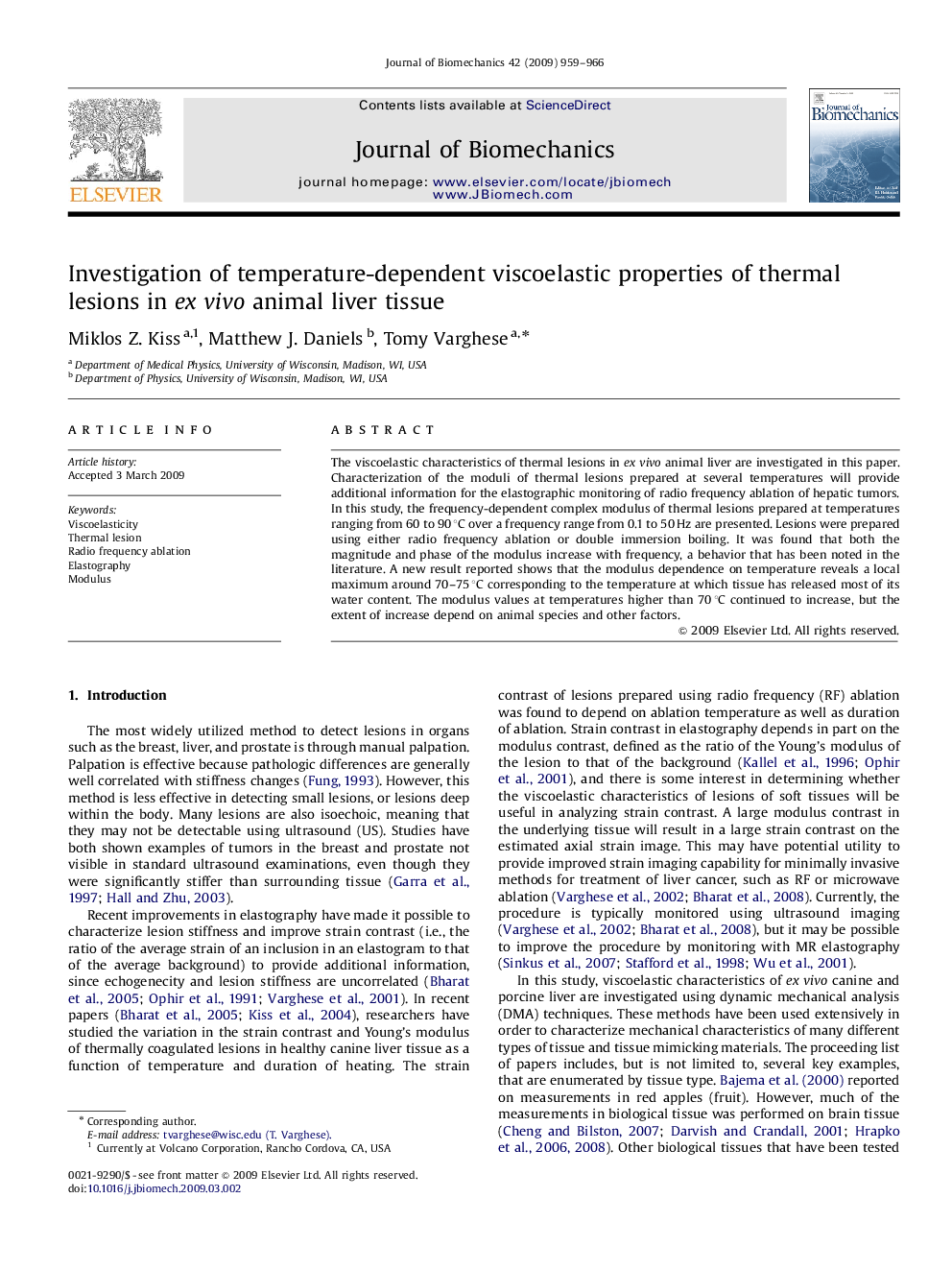| Article ID | Journal | Published Year | Pages | File Type |
|---|---|---|---|---|
| 872684 | Journal of Biomechanics | 2009 | 8 Pages |
The viscoelastic characteristics of thermal lesions in ex vivo animal liver are investigated in this paper. Characterization of the moduli of thermal lesions prepared at several temperatures will provide additional information for the elastographic monitoring of radio frequency ablation of hepatic tumors. In this study, the frequency-dependent complex modulus of thermal lesions prepared at temperatures ranging from 60 to 90 °C over a frequency range from 0.1 to 50 Hz are presented. Lesions were prepared using either radio frequency ablation or double immersion boiling. It was found that both the magnitude and phase of the modulus increase with frequency, a behavior that has been noted in the literature. A new result reported shows that the modulus dependence on temperature reveals a local maximum around 70–75 °C corresponding to the temperature at which tissue has released most of its water content. The modulus values at temperatures higher than 70 °C continued to increase, but the extent of increase depend on animal species and other factors.
